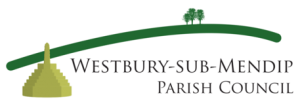Next meeting March 23rd at 4.30pm on Zoom
John Barkle will talk about his book
Memories of a Village Grocer
if you would like to hear John talk please complete the form below
Report of Zoom Meeting 23rd February 2021
Our speaker for this Zoom meeting was Jackie Laws who spoke about her charitable work with Send A Cow.
Sue welcomed 16 people to the meeting and extended a very warm welcome to those joining us who were not regular members :- Pippa Mains and Vivienne Nottley. We were delighted to welcome Jackie, our speaker.
Apologies were received from Julie Baker, Sue Dennett, Barbara Calverley and Alex Gundry.
Jackie gave a brief overview of her talk which she then expanded in her talk.
Send A Cow works in 6 countries in Africa :- Ethiopia, Kenya, Uganda, Rwanda and Zambia.
Eighty percent of staff are African and they work on projects to help them to support themselves. They are encouraged to assess what they already have and come up with their own solutions to grow nutritious food and support themselves. The charity gives them knowledge and training and sometimes gifts of seeds or livestock to help them to get started. Having a great sense of community they are keen to become ‘peer farmers’, trained to become trainers themselves and pass on the knowledge. “I am happy because I help my fellow farmers”.
An African proverb is “sticks in a bundle are unbreakable”. A maxim for us all to adopt!
Passing on a gift to others in the community is a key principle to spread the knowledge.
Trying to change deep rooted ideas is a slow process, such as their perception of “men’s work” and “women’s work”.
For so long women did much of the hard work; women and children were last to eat and ate least – thus were malnourished. Also women played no part in the decision making. It is an aim of the charity to empower women through education. They are encouraged to think about sharing the workload and the decision making. (THM – Transformative Household Methodology)
Pictorial representation is a powerful tool – thus a grid with sticks is made on the ground for all to see and stones are placed to represent “who does what?”. Attitudes are beginning to change starting with sharing the workload and decision making and valuing the education of girls in order to broaden their horizons. They return to the community able to make an impact.
They are also encouraged to discuss harmful traditional practices (also deep rooted) such as FGM.
Education is given in health and hygiene and simple solutions to cleaning and saving water. (Tip Tap water). Also the importance of clean latrines.
They are taught how to farm in a sustainable organic way and to improve the soil and grow nourishing vegetables in any small container. Livestock farming is more minimal with only a small number of animals, with shelter and care in place.
Training is also given in enterprise and business skills. How to set up a working co-operative, money management and diversification e.g. providing a sewing machine and teaching how to use it to provide for their needs and to sell to others. Projects tend to be low input of resources but high in achievement.
As with other charities income has dropped drastically with COVID so concentration this year has been focused on emergency supplies.
Africa is behind the rest of the world digitally – with communication and electricity erratic although solar power is being developed more widely there.
As with other countries social problems, famine and disease have increased with this year.
Climate change has had a great impact with flooding and crop pests. They have contributed least to Global Warming but have been affected the most.
Projects to minimise the impact such as tree planting and protecting water sources are being encouraged. Their four main food crops (rice, maize, wheat and bananas) are susceptible to disease and whole plantations can be wiped out so they have been taught how to mix up the varieties in companion planting to minimise the risk.
Send A Cow began in the West Country and cows were actually put on planes! Money goes directly to people managing the projects not through, possibly corrupt, governments although permission is needed from governments.
Jackie thanked everyone in the village who supports her charity by regular giving or Christmas cards. A small amount of money goes a long way!
Sue thanked Jackie for her wonderfully presented and interesting talk. We in the wealthy west have much to learn from them particularly in their support for each other and their native pride in who they are.
The next conversation meeting will be on 9th March. Find a small object in your house which has a story connected to it – something sentimental or something brought back from a holiday etc.
The next talk will be on 23rd March – John Barkle will talk about “What Is Not In My Book!”.
